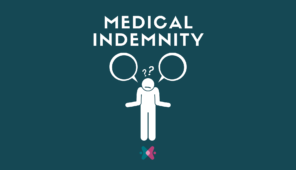Physician Associates: Help or Hindrance?
We hear from Mayur Vibhuti, Director Medical Education at IMH and a GP Partner, as he reflects on the pros and cons of physician associates
In my medical education role I am supporting my local university in producing a new Physician Associate (PA) programme and have a student PA working alongside me. There has been lots of talk around the pros and cons of this new breed of health professional and I’m not going to sit on the fence on this one.
I want one.
In fact I want three.
Let me explain why:
Physician Associates are postgraduate students who tend to have a 1st or 2nd class Biomedical Science degree. They have to pay tuition fees of £9000 per year to study an intensive 2 year clinical diploma. They learn medicine in the same style as we do in the medical model. As well as passing their end of year exams which are written and OSCE assessments they must sit a National Exam. They must re-certify by sitting this national exam every 6 years regardless of which speciality they end up in (imagine sitting medical school finals again!).
All in all you have to be pretty motivated to want to go into this profession.
Ok, here are the cons:
Being a new professional they do not have a regulated body, which means they do not have a governing body like the GMC. However, it is only a matter of time and the GMC has expressed an interest in taking the profession on. Because of this they cannot sign prescriptions or sign x-ray forms (UK legislation requires a clinical profession to have a governing body to enable this). They do have a voluntary register and it is recommended that any employers ensure that any Physician Associates employed are on the register.
So here’s the rationale:
Patient demand and complexity is up. Numbers of doctors and nurses are down. How many times a week have you spent time doing a task and thought – I didn’t go to medical school for 5+ years to do this! Physician Associates are not doctors, don’t want to be doctors nor can they replace doctors as they are a dependent profession i.e. they work alongside doctors to form a bigger team to help treat patients. If someone offered you an extra pair of clinical hands on the ward or in your general practice would you say no thanks I like dealing with all of the work by myself??
No I didn’t think so.
In the next 5 years of the NHS forming geographical ‘systems’, blurring the boundaries between primary and secondary care, are these the ultimate clinicians who can help integrate care across the two? Well I can’t do it by myself…
Mayur Vibhuti is a Director Medical Education at IMH and a GP Partner.
Read more of Mayur’s blog articles here.
Mayur Vibhuti
Latest posts by Mayur Vibhuti (see all)
- Don’t Leave…It’s compassion fatigue - 1st August 2016
- Are Millenials Shaping The NHS? - 26th June 2016
- How I created a Portfolio GP career - 3rd April 2016

